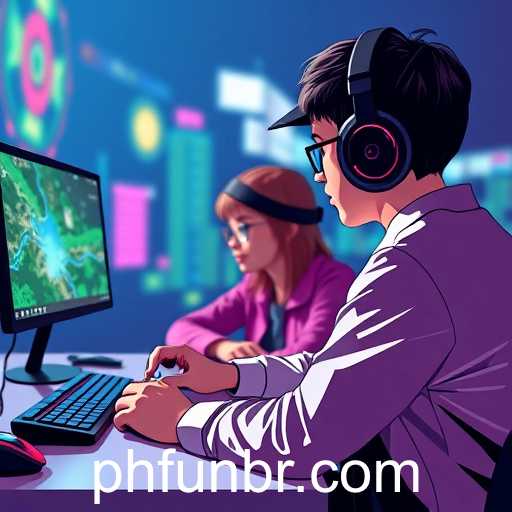In recent years, the intersection of online gaming and education has become a focal point for educators and tech developers alike. As of 2025, the increasing popularity of gaming platforms such as phfun is not only captivating gamers but is also gradually being integrated into educational frameworks. Phfun, known for its wide array of English language games, has emerged as a key player in this evolving landscape.
The dynamics of online gaming have dramatically shifted with advancements in technology, providing more immersive and interactive learning experiences. These platforms are now being redesigned to support educational curriculums, engaging students through gamified learning processes. With educational institutions recognizing the potential of games to nurture critical thinking and problem-solving skills, phfun has embarked on several projects to enhance its game offerings with educational content.
However, the integration of games like those found on phfun into formal education is not without its challenges. Critics argue that excessive gaming may lead to decreased attention spans and a reliance on digital platforms for learning. Yet, proponents highlight how these games can cater to various learning styles, offering personalized learning experiences that traditional methods often lack.
In response to this growing demand, phfun has introduced educational competitions and tournaments aimed at encouraging collaborative learning and skill development. These competitions have been designed to motivate students to work together, fostering a sense of community and shared goals.
The broader conversation around digital learning and entertainment raises important questions about the future of education. It points towards a future where gaming and learning intertwine more seamlessly, providing educational opportunities that are both effective and engaging. As online gaming continues to evolve, platforms like phfun are poised to play a significant role in redefining how educational content is delivered to students across the globe.
The year 2025 could very well be marked as a turning point in how educational systems value the role of digital games in learning. As we observe the transition, it is imperative for stakeholders in both education and the tech industry to collaborate and create a balanced approach that harnesses the benefits of online gaming while mitigating its challenges.








